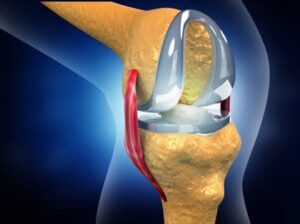With the earliest known use of stainless steel in orthopedic surgeries in the early 1900s, the metal has been used for over a century now to make important orthopedic implants and instruments. Surgeons extensively leverage stainless steel orthopedic implants for the fixation of bones & joints, and the treatment of patients with varying orthopedic injuries and conditions.
What are stainless steel orthopedic implants? Why is stainless steel so widely used for making orthopedic implants? Who is the most trusted developer and producer of advanced stainless steel orthopedic implants? Keep reading to find out.
Advanced Stainless Steel Orthopedic Implants
Orthopedic surgery has come a long way, thanks to advancements in materials, technologies, production processes, R&D, and much more. Among the many materials used for developing orthopedic implants, stainless steel is not only the oldest but the most widely used material for orthopedic implants.
Stainless steel orthopedic implants play a key role in improving the quality of life of countless patients by enabling the effective fixation of fractures, correction of deformities, treatment of injuries & orthopedic conditions, and restoring mobility.
Stainless steel is considered one of the best choices for producing orthopedic implants because of its exceptional properties (discussed in detail in the following section). Stainless steel is an iron-based alloy that typically contains a minimum of 10.5% chromium. This chromium content enables the formation of a protective, self-healing, 2nm thickness film of passivation chromium oxide.
Stainless steel is low-carbon steel, known for its high corrosion-resistance properties. Over the years, research and clinical innovations have led to the development of premium surgery-grade stainless steel that ensures the highest levels of patient safety and enhances surgical outcomes. Among types of stainless steel (316, 316L, 420, and 440) that are frequently used for surgical applications, type 361L is the most popular.
Despite the emergence of titanium alloys with much higher anti-corrosion properties and biocompatibility, stainless steel orthopedic implants, especially for transient or temporary use, still occupy a large share of the market. It is mainly because of the benefits of stainless steel orthopedic implants.
The Benefits of Stainless Steel Orthopedic Implants
Strength and Durability
One of the standout features of stainless steel orthopedic implants is their exceptional strength and durability. Orthopedic implants such as plates, screws, nailing systems, and prosthetics must endure considerable stress from the human body. Stainless steel, being one of the sturdiest of alloys, is robust and can withstand the rigors of stress, body weight, and daily use while maintaining the structural integrity of the implants.
Corrosion-Resistant
Orthopedic implants interact with bodily fluids such as blood, sweat, and other corrosive substances. Stainless steel orthopedic implants can effectively withstand the corrosive effects of bodily fluids. As a result, these implants remain safe and functional for extended periods of time, reducing the risk of implant rejection & other complications. In effect, their exceptional corrosion-resistance properties make them a safe choice for countless patients.
Biocompatibility
In addition to their outstanding strength and corrosion-resistance properties, stainless steel orthopedic implants have high biocompatibility. In other words, they are well-tolerated by the human body and successfully integrate with surrounding tissues. They do not create adverse chemical reactions when they interact with bodily fluids. There is a lower risk of infections and adverse reactions. So, it is safe to be used to treat fractures and other orthopedic conditions for a large number of patients.
Easy Processing and Forging
Stainless steel orthopedic implants for joints and bones are among the easiest to process and forge. Stainless steel can be readily shaped and fabricated into durable, precise, and exceptional implants. Not just that, with the advancements in technology, designing, prototyping, and manufacturing capabilities, it is also possible to easily customize stainless steel orthopedic implants to treat complex cases.
Competitive Pricing
In comparison to other materials such as Titanium and chromium-cobalt, stainless steel is the most widely available. Further, stainless steel orthopedic implants have lower production costs. As a result, these implants are competitively priced and enable surgeons to make orthopedic surgeries affordable to countless patients.
Gesco: Leading the Way in Stainless Steel Orthopedic Implant Innovation
Gesco, a globally renowned medical device company in India known for its obsession with quality, excellence, and innovation, is leading the way in the design, development, and manufacturing of advanced orthopedic implants, forged with premium, surgery-grade stainless steel and titanium. We continuously invest in R&D to develop stainless steel & titanium orthopedic implants that are at the pinnacle of innovation.
Our superior quality, precise stainless steel orthopedic implants include Halder Humeral Nail, Halder Tibial Nail, and Halifax Nail. To learn more about these implants, visit our website now!



